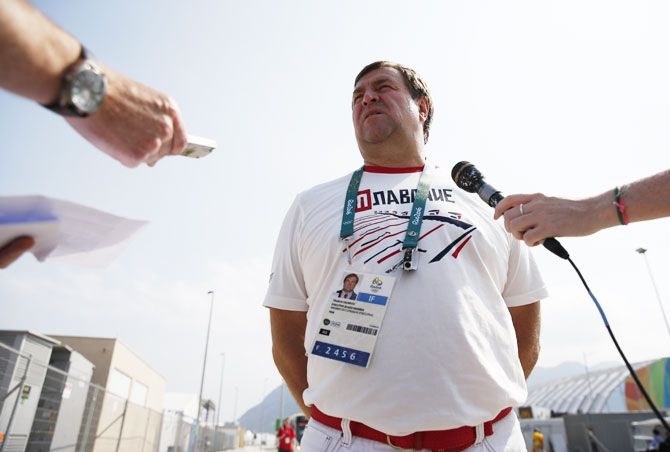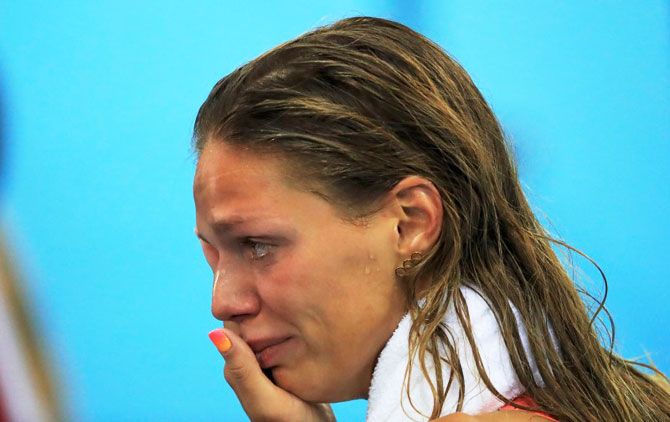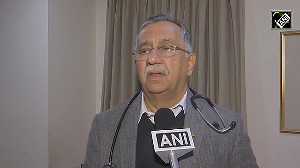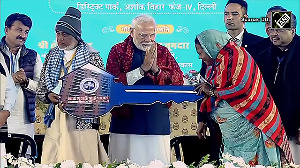
Russian swimming chief Vladimir Salnikov said on Tuesday the atmosphere surrounding his team at the Olympics reminded him of the Cold War, and criticised American breaststroke champion Lilly King for attacking the integrity of her Russian rival.
In a tense showdown on Monday evening, King defeated Russia's Yulia Efimova, who has twice been suspended for doping violations, and stood by comments describing her as a drug cheat. The Russian was loudly booed by the Rio crowd.
"I think the whole atmosphere is very strange," said Salnikov, president of the Russian Swimming Federation, who won four swimming gold medals in the 1980s during a period of US-Soviet tensions that prompted the two superpowers to boycott each other's Olympics.
He said the situation now was similar to the past "when we had the situation with the Cold War and everything was like Russia (versus) America and a lot of people were putting oil on the flame to make it higher".
"This is another round, but I think we will survive it," he told Reuters in an interview.
More than 100 Russian athletes, including the entire track and field and weightlifting teams, were banned from the Rio Olympics after independent reports for the World Anti-Doping Agency found evidence of widespread state-sponsored cheating.
Russia argues it is taking steps to clean up sport and is being singled out for political reasons.
The issue of doping overshadowed the build-up to the Olympics and, far from dying down since they opened on Friday, has escalated as swimmers like King and Australian freestyle champion Mack Horton have directly branded rivals as cheats.
The controversy is personified in the figure of Efimova, who has been booed at each of three appearances and broke down in tears after finishing second to King on Monday night.

At an awkward news conference alongside Efimova, the 19-year-old King said: "I do think it is a victory for clean sport and just to show that you can do it while ... competing clean your whole life."
Salnikov said the American was entitled to her opinion, but noted that Efimova had been cleared to compete last week by the Court of Arbitration for Sport (CAS), the highest appeal tribunal, and was therefore fully entitled to take part.
He implied King's comments were unsporting.
"Does she consider the CAS decision is wrong?" he asked.
"She has a long road to go in sport, I hope, and I think in the end she will understand there are certain rules, there's a procedure that regulates the participation of athletes. Of course she has the right to her opinion, but you need to be objective and you need to be honourable."
Efimova told reporters on Monday she had not slept for weeks because of the stress of not knowing whether or not she would be able to swim in Rio.
"Efimova has been through a very severe ordeal, and in an atmosphere of distrust and uncertainty I think she showed very strong character - resilience and focus - and so I think she deserved her medal," said Salnikov. "She has come through very tough times and I'm sure she will cope."
Efimova was banned between October 2013 and February 2015 after testing positive for traces of the anabolic steroid DHEA. She was also briefly suspended after testing positive for meldonium earlier this year.
She is due to compete again on Wednesday in the heats of the women's 200m breaststroke, in which she won an Olympic bronze medal in London in 2012.
Salnikov said the stress and uncertainty of the build-up had affected the Russian team as a whole, but his athletes were bearing up well.
"I think most of them have withstood this test," he said.
"What didn't kill us makes us stronger."








 © 2025 Rediff.com -
© 2025 Rediff.com -